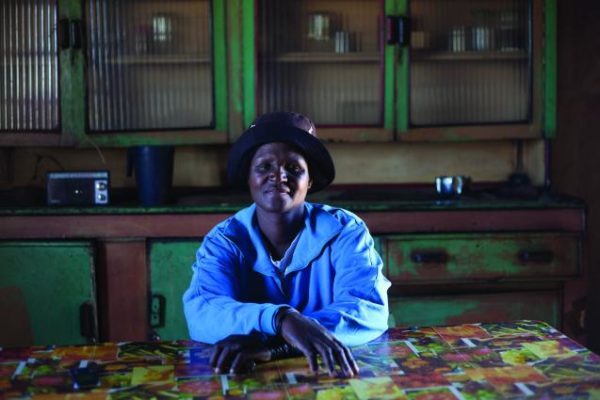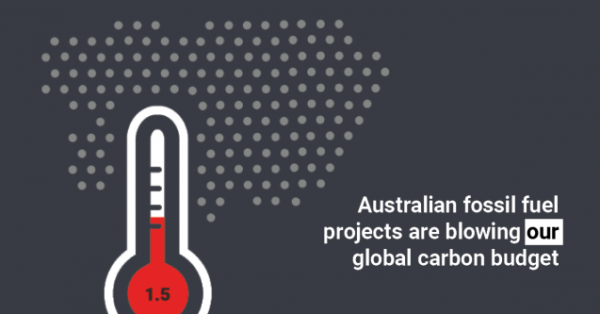In our latest report, Undermining Women’s Rights: Australia’s global fossil fuel footprint, we revealed that ASX companies are currently operating 35 coal, oil and gas projects in low income countries, and are planning a fourfold expansion that could take that number to a staggering 150 in coming years.
Based on publicly available information, we have calculated that the operational projects alone could cause 2.4 billion tonnes of carbon emissions. That is the equivalent of Adani’s proposed Carmichael mine operating for 17 years, or approximately five times Australia’s current annual carbon emissions. This is clearly inconsistent with the action we must take to avoid climate-related disasters.
In some cases, these fossil fuel projects have received hundreds of millions of dollars in taxpayer-backed loans from Government agency, the Export Finance and Insurance Corporation (Efic). And two of the three countries with the largest proportion of projects are also the recipients of the majority of Australia’s aid budget: Papua New Guinea and Indonesia.
What do these projects have to do with women’s rights, and the stated aims of Australia’s aid contribution to gender equality around the world? Everything.
Fossil fuel extraction is a feminist issue.
Research shows us what women in mining-affected communities already know: from the day that coal, oil and gas companies start exploration, through to the abandonment of mines that are no longer profitable, women bear the brunt of this dangerous industry.
The influx of male mine workers, often dislocated from their communities and social support structures, leads to increased HIV infection rates, and gender-based violence. The environmental degradation of these projects, which can be especially problematic in coal, oil and gas projects, leads to water and food insecurity. Families may be displaced from their land and, even when they are not, many women report seeing their crops die and water sources dry up following the arrival of a foreign coal company. As they work harder and harder to feed their families and collect water, poverty is further entrenched. The community consultation processes followed by mining companies often leave women out of decision-making, or make their involvement impossible, by privileging the input of local male leaders.

Of course, the fossil fuel industry impacts communities well beyond the sites of their extractive operations.
Climate change is already putting extreme pressure on women in countries most vulnerable to disaster. We know that women and children are 14 times more likely than men to be killed during disaster, and during drought and other slow-onset emergencies, women are disproportionately affected due to existing gender inequalities.
The impacts of Australian mining companies on women’s rights globally are so serious that, in July this year, the UN Convention on the Elimination of All Forms of Discrimination Against Women (CEDAW) Committee handed down recommendations to the Australian Government, demanding that action be taken to stop Australian mining companies violating women’s rights in low income countries.
While women and their communities are losing their homes, their lives and their livelihoods as a result of the devastating impacts of climate change, Australia is failing to provide leadership when it comes to climate policy.
The problem may seem overwhelming, but the steps the Government must take are clear.
Women’s organisations from PNG to South Africa are calling on governments of wealthy countries like Australia to take responsibility for the operations of their fossil fuel companies. And, while many parts of the world have moved to take action on climate change and increase oversight and regulation of mining companies operating outside their borders, the Australian Government is lagging well behind global best practice.

This week, world leaders are coming together in Bangkok for a major conference on climate change. If Australia is serious about gender equality and women’s empowerment, and wants to fulfil its obligations under international agreements on climate change and human rights, it must take swift action to bring our policies on transparency and accountability of ASX listed fossil fuel companies up to scratch.
This means no longer allowing government agencies to use taxpayer money to underwrite loans for fossil fuel projects, regulating these companies’ operations to ensure they respect human rights law and disclose carbon risk, and giving women in affected communities access to justice in cases where companies violate their rights.
For too long, Australian fossil fuel companies have been operating out of sight and out of mind, and it is women in low income countries who are facing the consequences. It’s time to stand in solidarity with these women, and hold the fossil fuel industry to account.
Lucy Manne is the Head of Policy & Campaigns at ActionAid Australia.